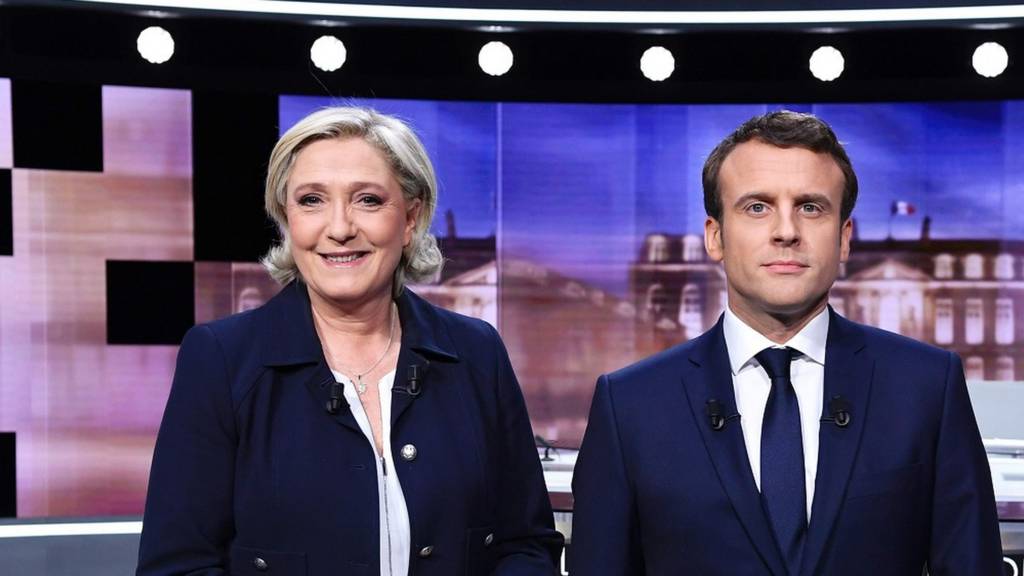In a recent statement, French President Emmanuel Macron has commented on the verdict involving Marine Le Pen, the leader of the National Rally party. This marks the first time that Macron has spoken publicly about the ruling, which has drawn significant media attention and public interest. The President emphasized a foundational principle of French democracy: the law is applicable equally to every citizen, regardless of their political standing.
The context for Macron’s comments arises from the ongoing political dynamics in France, where Le Pen has emerged as a prominent figure in right-wing politics. The verdict pertains to the legal questions surrounding electoral financing and possibly misleading campaign practices related to the European elections in 2014. Le Pen has been criticized for her party’s financial operations, which opponents argue have not adhered to legal standards.
Macron’s reiteration that the law applies to all citizens is particularly poignant in a nation where political discourse often veers into deeply polarized territories. By asserting the importance of legal equality, Macron aims to reinforce public trust in the judicial system and highlight commitments to transparency in governance. This assertion comes at a time when many citizens are demanding accountability from their elected leaders, especially given the several scandals that have marked French politics over recent years.
In France’s political sphere, Le Pen represents not only a party but a movement that continues to challenge traditional politics and further the dialogue around nationalism, identity, and immigration. Her political strategies often involve leveraging public discontent, especially among constituencies feeling neglected by mainstream parties. Macron’s response encapsulates a broader effort to maintain the integrity of the rule of law amidst this shifting political climate.
Macron’s administration is keenly aware of public perceptions of justice and fairness, particularly given the French Revolution’s historical legacy of fighting against inequality. His comments serve as a reminder of the foundational principles that underlie France’s legal system, indicating that there should be no exceptions to the rule of law. By emphasizing that political leaders are also subject to legal accountability, Macron seeks to evoke a sense of fairness that is essential for the functioning of any democracy.
Moreover, the President’s remarks highlight the complex interplay between law and politics in the current era. The impact of Le Pen’s political maneuvers extends beyond legality; they tap into national sentiments which have the potential to sway electoral outcomes. As the National Rally party bolsters its base of support, Macron’s clarion call for adherence to legal norms becomes increasingly critical. He strives to position himself as a leader who respects democratic values and seeks justice, thus appealing to a broad swath of voters who value legality and fairness in governance.
In addressing the verdict about Le Pen—who has previously contended that the judicial system is weaponized against her political ambitions—Macron’s approach is carefully crafted to deter any insinuations of bias or favoritism. His comments are also a strategic maneuver to bolster his administration amidst rising populist sentiments, reinforcing the notion that governance should be based on principles of justice rather than political expediency.
The response from Le Pen following Macron’s statements has been one of both defiance and reiteration of her party’s narrative that it is under continuous attack from the establishment. This reflects a broader resistance from her camp against perceived injustices or political persecutions, a narrative that appeals to her supporters’ sense of disenfranchisement.
As France continues to grapple with these complex issues, Macron’s insistence on the rule of law remains a significant edge in an evolving political landscape. His administration seeks to navigate the discourse around justice and accountability while managing its responses to emerging political challenges posed by Le Pen and similar movements.
In summary, the President of France has once again highlighted the nation’s commitment to equality under the law, reinforcing a crucial tenet that underscores democratic governance. Macron’s statements serve not only as legal affirmations but as an attempt to unify and reassure a public searching for integrity within their institutions. With forthcoming elections on the horizon, the implications of this discourse will continue to resonate across the political landscape in France, shaping not only public sentiment but also future policymaking efforts as the country progresses into a new political season. The events surrounding this case and the subsequent comments made by Macron encapsulate a pivotal moment reflecting the intricate balance of law, politics, and public trust in contemporary France.



